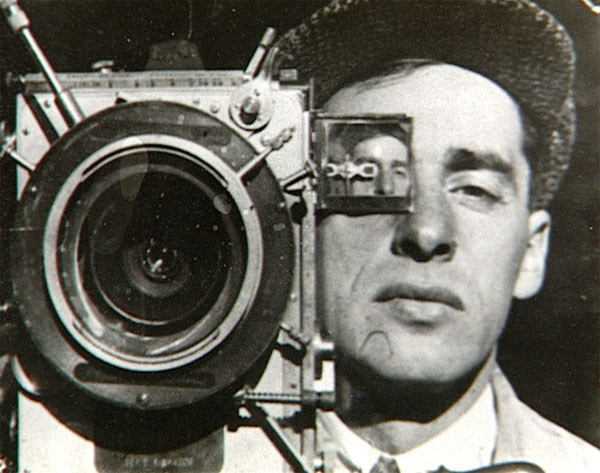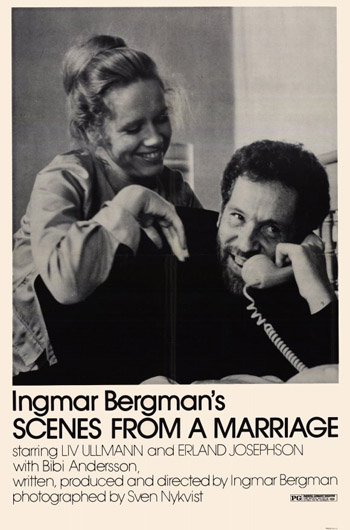With the BFI season Thought in Action: The Art of the Essay Film running through August 28, Sight & Sound has put together a primer introduced by Andrew Tracy, who sketches a history of a fluid term:
Whether used as critical/curatorial shorthand in reviews and program notes, employed as a model by filmmakers or examined in theoretical depth in major retrospectives (this summer’s BFI Southbank program, for instance, follows upon Andréa Picard’s two-part series The Way of the Termite at TIFF Cinematheque in 2009-2010, which drew inspiration from Jean-Pierre Gorin’s groundbreaking program of the same title at Vienna Filmmuseum in 2007), the “essay film” has attained in recent years widespread recognition as a particular, if perennially porous, mode of film practice. An appealingly simple formulation, the term has proved both taxonomically useful and remarkably elastic, allowing one to define a field of previously inassimilable objects while ranging far and wide throughout film history to claim other previously identified objects for this invented tradition.
It is crucial to note that the “essay film” is not only a post-facto appellation for a kind of film practice that had not bothered to mark itself with a moniker, but also an invention and an intervention.
Following his essay on that same page—with clips—are Ginette Vincendeau on Jean Vigo’s À propos de Nice (1930); Catherine McGahan on Humphrey Jennings’s A Diary for Timothy (1945); Chris Darke on Alain Resnais’s Toute la mémoire du monde (1956), Jean-Luc Godard and Jean-Pierre Gorin’s Letter to Jane (1972), and Chris Marker‘s San soleil (1982); Sophie Mayer on Forough Farrokhzad’s The House Is Black (1963); Geoff Andrew on Orson Welles‘s F for Fake (1973) and Víctor Erice’s La Morte Rouge (2006); Olaf Möller on Harun Farocki’s How to Live in the German Federal Republic (1990); Sergio Wolf on Edgardo Cozarinsky’s One Man’s War (1982); Nina Power on Black Audio Film Collective’s Handworth Songs (1986); and Nick Bradshaw on Thom Andersen’s Los Angeles Plays Itself (2003).
“Essay films,” writes Sukhdev Sandhu in the Guardian, “unlike conventional documentaries, are only partly defined by their subject matter. They tend not to follow linear structures, far less to buttonhole viewers in the style of a PowerPoint presentation or a bullet-pointed memo; rather, in the spirit of Montaigne or even Hazlitt, they are often digressive, associative, self-reflexive. Just as the word essay has its etymological roots in the French ‘essai’—to try—essay film-makers commonly foreground the process of thought and the labour of constructing a narrative rather than aiming for seamless artefacts that conceal the conceptual questions that went into their making. Incompletion, loose ends, directorial inadequacy: these are acknowledged rather than brushed over.”
For GQ, Nate Erickson talks with Mark Romanek about his and Jay-Z’s Picasso Baby: A Performance Art Film (above), which, as you’ll have heard, premiered online Friday evening. Romanek: “The song name-checks so many fine artists, I thought it should exist in some sort of art world venue. I immediately started thinking about performance artists and Marina Abramovic’s The Artist is Present. Since Jay normally performs for 60,000-80,000 people at a time, I thought, ‘What would it be like to perform for people individually in a gallery setting?'” For six hours. Naturally, they realized they’d need to clear the idea with Abramovic: “She was very open and happy to let us be a part of what she saw as a continuum of performance art influences.”
Alex Abramovich for the London Review of Books: “Let Jay-Z voice his nostalgia for ‘that era when art and music were one, when Basquiat was hanging out with Madonna and Fab 5 Freddy and all those worlds were colliding.’ It’s a perfectly nice sentiment (though it’s hard to imagine that the collisions Jay-Z’s referring to were micro-managed in quite the same way, or for the same reasons). Either way, you can’t help noticing: the track itself is garbage. Better to spend some time at HiLobrow, an online magazine that’s currently running a 25-part series ‘dedicated to the close analysis and eccentric appreciation’ of 25 old-school hip-hop recordings.”
With The Godfather (1972) and The Godfather Part II (1974), Francis Ford Coppola “single-handedly, mightily, and enduringly shored up the ruins of familiar but outmoded conventions,” argues the New Yorker‘s Richard Brody: “performances of a poised dramatic accuracy, images of a burnished, low-light luxuriousness, shots composed with a fluid precision, a script that foregrounds the action to express the story’s strategic, psychological, and political implications. The accomplishment was great; its negative effects endure.”
In other news. Kentucker Audley has launched a new, expanded, newsier site for No Budge, a platform for “true indie films.”
In the works. The BBC livened up a quiet Sunday yesterday by announcing that Peter Capaldi, known to many as Malcolm Tucker (The Thick of It and In the Loop), will be the new Doctor Who.
Trevor Nunn will direct Olivia Williams in Joanna Murray-Smith’s stage adaptation of Bergman’s Scenes from a Marriage (1973) at the at the St. James Theatre in London next month, reports Alistair Smith for the Stage News.
Obit. “French actor, writer and director Michel Lemoine passed away on July 27 at the age of 90,” writes Tim Lucas. “One of the most extraordinary faces of the Eurofantastique, and one of its biggest fans, he will be missed.”
More browsing? John Wyver‘s posted his first roundup since returning to London from his trip to China.
Update:
Jamie Stuart shot some behind-the-scenes footage during the making of “Picasso Baby” and, as director, photographer, editor, and composer, has made “Backstage Baby”
For news and tips throughout the day every day, follow @KeyframeDaily on Twitter and/or the RSS feed. Get Keyframe Daily in your inbox by signing in at fandor.com/daily.





